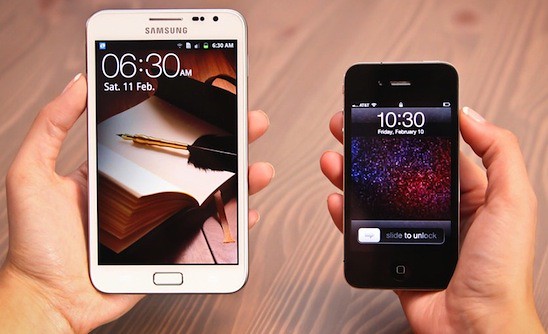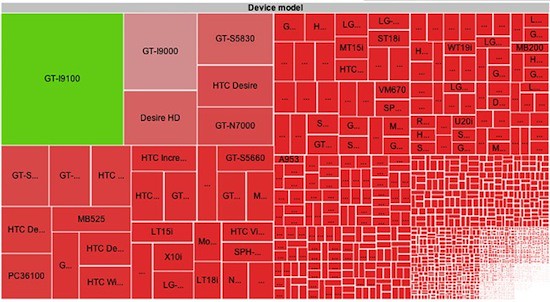Back in March 2007, tech pundit John C. Dvorak wrote a column titled, “Apple should pull the plug on the iPhone.”
As you might imagine, the thrust of the article was that Apple should pull the plug on the iPhone, with Dvorak explaining in vivid detail that Apple had no chance of success in the smartphone market.
A brief snippet for your recollection.
There is no likelihood that Apple can be successful in a business this competitive. Even in the business where it is a clear pioneer, the personal computer, it had to compete with Microsoft and can only sustain a 5% market share.
And its survival in the computer business relies on good margins. Those margins cannot exist in the mobile handset business for more than 15 minutes.
Recently, Dvorak explained to Paul McNamara of Network World why he was so off base on his iPhone prediction. If you’re expecting Dvorak to be self-reflective and acknowledge that he didn’t see the ingenuity Apple brought to the table with the iPhone, guess again.
Instead, Dvorak blames Apple’s penchant for secrecy as the reason why he was so wrong about the iPhone.
Apple had a policy – and still does, NOT to even talk to anyone who has annoyed Steve Jobs in the past or present. They are blackballed. Other writers who are careful never to be more than only critical in an Apple approved way get full access as long as they tow the line. Everyone in the business knows who is blackballed and who isn’t. The ones who aren’t may as well work for Apple.
So I was genuinely caught off guard with these columns where I really didn’t know anything except the miserable history of the smart phone, and I was kept in the dark by people who did know and who had all signed rigid non-disclosures. These documents should never be signed by reporters but many do it for the edge they get. So even if Apple were to show me the device I would not have been able to say or do anything except to say it was remarkable.
I’m calling BS on that right there.
Dvorak’s ridiculously misinformed opinion piece was written in March 2007, months after Steve Jobs unveiled it to the entire world. I don’t know what Dvorak’s smoking but it certainly does explain the lack of insight in his articles.
Further, Dvorak’s assertion that if he were to sign a non-disclosure agreement with Apple he would have no choice but to say that iPhone was “remarkable” is flat out wrong and ignores the less than stellar reviews Apple products and services sometimes do receive from favored Apple journalists.
Avoiding these corrupt practices such as non-disclosures leaves me vulnerable when I’m trying to predict the outcome of a strategy with a product that is sight unseen. It is all theory at that point and it did not work out this time, to say the least. This column is a constant reminder. Since I’ve written over 4,500 articles over the last 30 years I would hope that people look at the track record. I blew it about six times in a major way like this. I do not consider that bad.
Oh, so non-disclosures are corrupt now?
What a joke. Truthfully, it’s sad that Dvorak can’t man up to his mistake and instead places the blame for his narrow minded predictions onto Apple and their allegedly “corrupt” practices.
As for Dvorak’s track record, I agree, it does speak for itself. But as opposed to what Dvorak implies, his track record doesn’t reflect body of work overflowing with any real insight or sharp analytical skills. On the contrary, it’s filled with either common day observations or outrageous and asinine articles written because either a) Dovrak believes it or b) Dvorak is obsessed with whoring for pageviews.
Dvorak’s blame game antics continue,
Of course when I actually got to see the phone I was enthralled like everyone else and regretted getting screwed over by the Apple “machine.” But it was an entertaining exercise and a lot of Apple fans think it’s hilarious that I could be so wrong. But these people never liked me in the first place. And as for my prediction that this phone would be a bad idea for Apple to pursue, anything can still happen. Time is a cruel mistress.
Again, Dvorak saw the phone in January 2007 like everybody else. And nobody really cares that a man named John Dvorak made a bold and completely 180 degree wrong prediction about the iPhone. What gets people going is that Dvorak is held up and put out there as some sort of tech analyst when, as I mentioned before, his track record sings a completely different tune.
Also, on CNBC a few days after the iPhone introduction, Dvorak had this to say:
To me, I’m looking at this thing and I think it’s kind of trending against what people are really liking in phones nowadays, which are those little keypads – the BlackJack from Samsung, the BlackBerry obviously, kind of pushes this thing, the Palm… but I think Apple can do wrong and I think this is it.
Yep, people are really missing those “little” keypads.
On the fifth anniversary of the iPhone, a device which absolutely revolutionized the smartphone market, all Dvorak can muster up is that his predictions were off base because Apple is a secretive company. And of course, he has to add in that “anything can still happen.”
I suppose Dvorak owning up to his inability to accurately assess the iPhone’s potential is still possible.
And as an added bonus to you loyal folks who are still reading, let’s take a look back at another one of Dvorak’s “scoops”, this one from April 2007.
During Episode 93 of the top-ranked podcast, Dvorak said he received information from “a guy at Cingular who’s testing the product.” The unnamed, male Cingular employee told Dvorak “there’s lots of issues.”
“He says the amateur mistake that they made is not having a removable battery,” Dvorak said. “You run 20 minutes and you’re using up half the battery power. You get 40 minutes total talk time. And the interface fouls up constantly.”
Precient.









Tue, Jul 10, 2012
Comments Off on Next-gen iPod Nano to resemble a mini iPhone